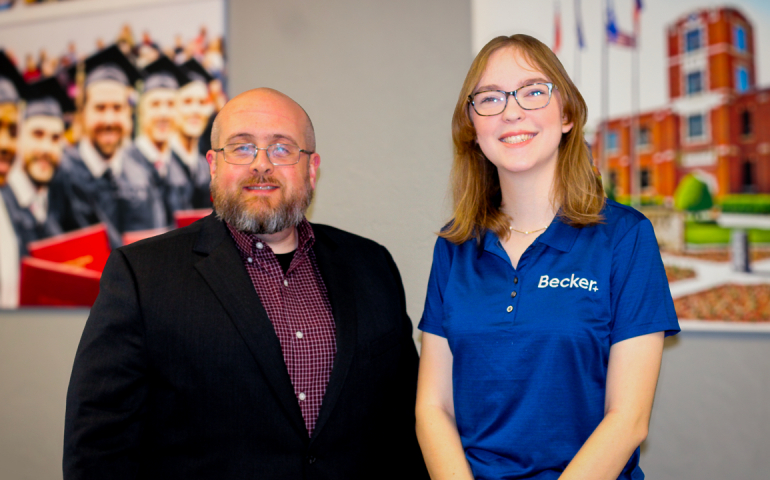May looms over many graduates every spring as they scramble to find internships and jobs for the near future. For accounting majors, there is one more thing to consider: certifications.
Professional certifications can be well worth it. Lyndsay Watson, an accounting major and Becker ambassador, says “The CPA and CMA are extremely important labels to acquire because they show that you are capable of hard things. If you just have a four-year degree, you will only be qualified for low-paying positions at companies. However, with a certification, you can get a higher-paying job.”
The most common certification for accountants is the CPA or Certified Public Accountant certification. You have to have 30 credit hours of upper-division accounting, and then you sit and take the exam after 120 total credit hours. However, you will not get the certification until you have 150 credit hours. This means that most people will get their masters in a business-related degree.
Another common certification is the CMA or the Certified Management Accounting certification. This certification is for those who want to work in a corporate business setting or in private accounting. The CPA is focused on tax and external auditing, while a CMA is looking at managerial and cost accounting as well as corporate finance.
Certifications are just the tip of the iceberg. Beyond CPA and CMA, there are certifications like the Certified Fraud Examiner (CFE) and Certified Internal Auditor (CIA), which cater to roles such as fraud investigation and internal auditing. These credentials open doors to niche markets and help candidates stand head and shoulders above the competition.
In some cases, people are not aiming for a big job in accounting. Rather, they would like to do bookkeeping for a church or friends. In that case, a certification is not needed. Watson says “In the end, it is important to research the things your accounting degree can do. You can do so many things, like taxes, financial, managerial, auditing, consulting, non-profit, and governmental accounting.”
Kirk Jackson, DBA and Chair of the School of Business states, “For certificates, Becker and GLEIM are companies that provide test prep programs for the CPA and CMA. If you are looking for organizations to find people in the industries you want to work in, there are usually state chapters you can look into. The Oklahoma Society for CPAs, the Institute for Management Accountants, and the local chamber of commerce are places students can connect with. Most of them are willing to network with students, as many professionals want to give back and help people start their careers.
Jackson also advises students to prepare typo-free resumes, LinkedIn profiles, and seek internships early saying, “Building strong professional relationships is key to long-term career success.” The final resource is Jackson himself. From career and life counseling to dealing with landlords and New Testament homework, he has done it all gladly. “I’m always happy to help.”
Jackson leaves students with this advice, “As you are focused on your career, in your professional and personal lives, never neglect your spiritual development. Don’t neglect who you are and your relationship with Christ is paramount, even if it is not always front of mind.” So, as you prepare for life after graduation and you are trying to secure that first job, make sure you are developing your whole person as you move into your new career.
Photo by: Katherine Baker
